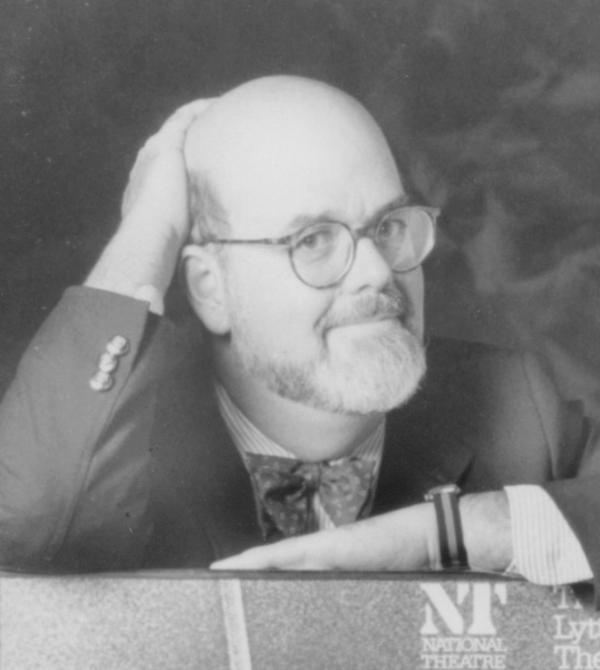Necrology
Because Hamilton Remembers


Samuel Renninger Crowl '62
Oct. 9, 1940-Jun. 16, 2024
“Sam was a shrewd and energetic administrator, a wildly successful teacher, a generous colleague, and a productive scholar who pursued his work because he loved it. I would be tempted to say that he was a model academic, except that he was too much himself to be a model of anything else.” Thus did his former colleague at Ohio University, Professor Beth Quitslund, summarize the life and achievements of Samuel Renninger Crowl ’62, P’87, who died on June 16, 2024, in Columbus, Ohio.
Sam was born on Oct. 9, 1940, in Waterville, Ohio, and came to Hamilton from the Maumee Valley Country Day School. On the Hill, he was a member of Chi Psi fraternity and majored in philosophy and religion. He was in the Charlatans, directing some of their performances, and later both joined and was president of the College’s chapter of Alpha Psi Omega, the national theatre honor society. He also served on the board of the Root Art Center and as a senior was in Nous Onze.
From Hamilton, Sam proceeded to Indiana University for graduate work in English literature, completing his master’s degree in 1969 and his doctorate in 1970. The title of his dissertation was “The Waverley Pattern: Imagination and Experience in Four Scott Novels: Waverley, Old Mortality, Rob Roy, and The Heart of Midlothian.”
It would be logical to assume that if his doctoral studies focused on 19th-century British literature, then Sam would conduct research in that area, but that was not to be. Instead, over the course of his academic career, he carved out a new area of study: Shakespeare on film.
His study of the Bard while at Indiana had another happy consequence, for it was in a course on Shakespeare that Sam met Susan Richardson. They were married on Dec. 29, 1963, and would have a daughter and a son.
In the fall of 1970, both Sam and Susan joined the English Department of Ohio University in Athens. Over the next decade he rose through the ranks to become a full professor in 1980. He accomplished much in that period, developing a reputation as a distinguished teacher, an active participant in faculty governance, and a scholar in his area. On two occasions he received the University Professor Award for the high quality of his teaching. It is noteworthy that this honor was not the product of a faculty committee’s assessment of his instruction; students made the decision.
His teaching was not limited to Athens. Making use of the intersession period between quarters, on five different occasions during the decade from 1975 to 1986 Sam directed the London Stage Program, taking students, as he put it, to “Shakespeare’s home office.” Often joined by his longtime mentor on the Hill, Edwin Barrett, Sam led tours of museums, galleries, and theatres. Also included were visits to pubs.
His instruction took another form between 1976 and 1978 when he conducted a weekly interview program titled Almanac on Ohio University’s WOUB-TV public television station. Among those he interviewed were George Plimpton, Alex Haley, Robert Bly, Mike Wallace, Stokely Carmichael, James Earl Jones, and, in keeping with Sam’s devotion to baseball, Stan Musial. For this work he received the first Elizabeth Mills O’Bleness Award for Outstanding Service to Public Broadcasting.
In 1976, Sam initiated the Alumni College to encourage graduates of varied backgrounds to return to Athens for short courses offered by faculty representing many of the university’s academic disciplines. It continued until 1998.
Sam was appointed dean of University College in 1981, when it administered the General Education Program, the University Professor Program, Reserved Officer Training Corps, two-year associate degree program, the Student Development Center, and the Bachelor of General Studies and Bachelor of Criminal Justice programs. During the course of his tenure in this position, he led the reorganization of general education requirements, no mean feat given the variety of interests competing to shape the plan.
At a time when many institutions, Hamilton included, had abandoned the practice of making students take a certain number of required courses, Sam argued for just such a curriculum. He believed that students were selling themselves short by focusing almost exclusively on their majors. He said: “We don’t want to train people for their first job, but for the best job.” To be prepared for that “best job,” “students must learn to think and to write. They must get an understanding of mankind — because students must interact with others in whatever they pursue in the future.”
Because of his success in transforming this foundational component of undergraduate education, he was hired to consult on similar programs at other institutions across the country. In 1990, his work was honored by the Board of Regents of the State of Ohio, which gave him the Program Excellence Award.
More broadly, Sam’s contributions to the university as dean were honored by its trustees when he stepped down in 1992. He was named Trustee Professor of English, only the fourth faculty member who had served in an administrative capacity to be so recognized. And he wasn’t done yet.
Sam’s interest in the humanities was not limited to the content of his own subject. He was concerned with how it was instructed. In 1994, he was a co-founder of the Charles J. Ping Institute for the Teaching of the Humanities, named for the university’s then president. Thanks to funding from the National Endowment for the Humanities and alumni, it established three named professorships — two for Ohio University faculty and one for a faculty member from another institution who would bring new ideas to the institute’s participants concerning education in the humanities. Still in existence, these appointments last three years. Other initiatives include week-long summer institutes and one-day workshops for high school teachers.
In tandem with these contributions, Sam was an active scholar, publishing papers in journals devoted to Shakespeare studies and presenting papers at conferences including the Midwest Modern Language Association, a regional chapter of the Modern Language Association, the leading American organization of scholars of literature. He also shared his research at the World Shakespeare Congress and the Shakespeare Association in America.
It was not until he turned 50 that Sam began work on Shakespeare Observed: Studies in Performance on Stage and Screen (1992), the first of what would eventually be seven monographs on Shakespeare as portrayed on film and related subjects. Several of his film studies dug deeply into the work of Sir Laurence Olivier and Sir Kenneth Branagh, whom he regarded as the leading Shakespearean actors of their times. In one study, for example, he compared their film performances as Henry V and discussed differences between the productions that, he argued, reflected the very dissimilar times in which each film was created.
His final book, published in 2024, was titled Shakespeare and Baseball: Reflections of a Shakespeare Professor and Detroit Tigers Fan, reflecting Sam’s twin passions. Among his discoveries of the connections between these two subjects was the common benefit of beer: it underwrote the establishment of many major league baseball teams as well as the Shakespeare Memorial Theatre in Stratford-upon-Avon, the home of the Royal Shakespeare Company.
Ohio University revered Sam. In addition to his being named trustee professor in 1992, it established the Samuel and Susan Crowl Professorship in English Literature in 2007, and, in 2015, on the occasion of the university’s Bicentennial Commencement, it awarded Sam an honorary Doctor of Humane Letters. He also gave the Bicentennial Commencement address.
Sam and Susan traveled widely. In addition to frequent visits to London and Stratford-upon-Avon, they visited Paris, Athens, and Venice. In the fall of 2000, they traveled to Toulouse, France, where he was an exchange professor for the university. For the balance of the 2000-02 academic year, they resided in London while he finished a book on Shakespeare and film: Shakespeare at the Cineplex: The Kenneth Branagh Era (2003).
While he had ostensibly retired in 2014 after 44 years at the university, Sam continued to teach a course on Shakespeare every so often until 2017, when he offered his Shakespeare on Film class for the last time. He continued to offer workshops on Shakespeare to Ohio high school teachers under the auspices of the Ping Institute. He made regular visits to Detroit to see the Tigers play. Sam was a devoted fan of the Ohio University Bobcats football and baseball teams, attending games both at home and on the road.
As an alumnus, Sam served Hamilton as a consistent donor to the Hamilton Fund and played a major role in the creation of the Class of 1962 Outstanding Teacher Award given every five years to an outstanding instructor among the Hamilton faculty. Beginning in 1987, he was the correspondent for the Class of 1962, a responsibility he held until his death.
For Sam, his time on the Hill was invaluable. Reflecting on it in his 50th reunion yearbook in 2012, he wrote: “Hamilton created a landscape and community in which one could discover what it means to be intellectually and socially alive and engaged. Education at Hamilton was not an alley to get through but a space to move in. And for most of us that swirling, swerving, razzle-dazzle movement of ideas and friendships led to growth, often in unexpected directions.” His encomium to the College in his 25th reunion yearbook was Shakespearean in declamation: “Wild and whirling times where books and ideas were made to matter and where enthusiasm was given opportunity to ripen into understanding.”
Samuel R. Crowl is survived by his wife, his daughter, Miranda Pistner ’87, his son, who is married to Terry Keleher ’86, and six grandchildren.
Note: Memorial biographies published prior to 2004 will not appear on this list.
Necrology Writer and Contact:
Christopher Wilkinson '68
Email: Chris.Wilkinson@mail.wvu.edu

The Joel Bristol Associates
Hamilton has a long-standing history of benefiting from estate and life payment gifts. Thoughtful alumni, parents, and friends who remember Hamilton in their estate plans, including retirement plan beneficiary designations, or complete planned gifts are recognized and honored as Joel Bristol Associates.
Contact
Office / Department Name
Alumni & Parent Relations
Contact Name
Jacke Jones
Director, Alumni & Parent Relations
